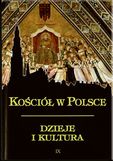KONTEKSTUALNY WYMIAR PISARSTWA HISTORYCZNEGO INSPIROWANY MISJĄ WERBISTÓW W CHINACH
The Contextual Dimension of the Historical Literature Inspired by the Divine Word Missionary Fathers’ Mission in China
Author(s): Andrzej MiotkSubject(s): Christian Theology and Religion, History, Cultural history, History of Church(es), Ethnohistory, Theology and Religion
Published by: Katolicki Uniwersytet Lubelski Jana Pawła II - Wydział Teologii
Keywords: Missions in China; Divine Word Missionaries; Eastern Culture; Missionary Literature
Summary/Abstract: The study aims at showing the dependency of missionary work based on various contexts in China as a mission country. The problem is displayed on four incidents from the mission of the Divine Word Missionaries who within a span of 67 years (1882- 1949) sent 543 missionaries to China. The incidents highlight the role of geographical, political, social and religious setting of China for missionary work. The first incident focuses on the role of the river Huang He, called “the sorrow of China” in winning lot of conversions to the Catholicism. The second incident was the murder of two SVD Fathers namely Francis Nies and Richard Henle in 1897 in South Shandong. This gave a pretext for the German’s occupation of Jiaozhou Bay. The third incident was in 1929 in Loshan. The missionaries there were perceived by the Chinese mainly as the agents of imperialism and a threat to the Chinese cultural identity. Finally, the last incident which occurred in Mingkiang discusses the case of breaking the ban on the participation in the worship of ancestors. This particular incident points to different factors which played a decisive role in the de nitive condemnation of the China rites through the decree Ex quo singulari of Benedict XIV (1742).The conducted study stresses the importance of contextualizing historiography. The mission’s historian in the times of an already global Church must ask himself about the relevant and fruitful perspective of a research being conducted. The rst basic step in the process of research is to examine the different contexts of the subject of historical research. Addressing the contexts allows the historian to nd the most inspiring and valuable research questions and to avoid reductionist interpretations. Christianity is becoming less Western and more and more global in its nature, and this leads to new research questions. The SVD China-mission exempli es the need for an interdiscipli- nary approach to the subject of historical research in order to satisfy the complexity of the missionary situation and to expand the categories of interpretation. An interesting problem will be the possible hierarchy and correlation of contexts. The complexity of the historical subject requires from the historian never to assume that the reader really knows what he means. Therefore, the rst fundamental duty of the historian is the effort to understand and clarify the contexts in which the subject of research is intertwined in order to make the text more readable and instructional. At the same time the historian himself should be aware that he perceives the facts through the prism of his personal circumstances such as family, environment, and education. In the process his historical writing becomes subjective.
Journal: Kościół w Polsce. Dzieje i kultura
- Issue Year: 2014
- Issue No: 13
- Page Range: 87-111
- Page Count: 25
- Language: Polish

